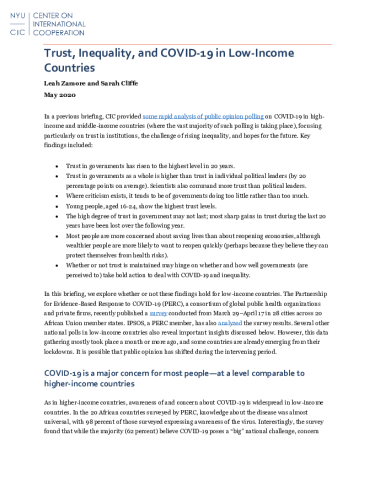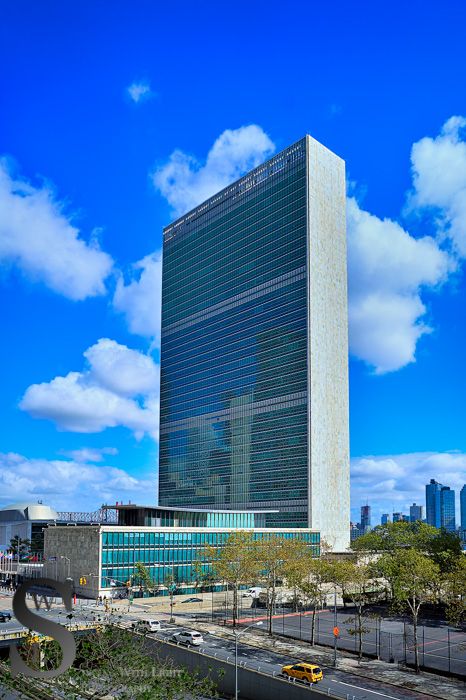As the COVID-19 pandemic continues, policymakers must navigate public perceptions of coronavirus risk and government responses. This task is all the more challenging given press coverage focusing on outliers and extreme views, polarization and disinformation on social media platforms, and the relative dearth of reliable public opinion polling. These constraints notwithstanding, understanding people’s perceptions of the impact of COVID-19 and their priorities emerging from this crisis will be crucial for building back better.

This two-part briefing pulls together data from several global, regional, and national polls conducted over the past month and a half to provide a descriptive summary of trends in public opinion towards COVID-19.
The first part of the briefing, by Paul von Chamier, Nendirmwa Noel, and Elizabeth Angell, focuses on global polls tracking levels of public trust in government and other institutions, and public perceptions of the trade-offs involved in calibrating lockdown measures. Overall, the results suggest that most people around the world are highly concerned about the pandemic, supportive of a strong government response, and willing to suffer economic losses in order to save lives—although not without limit.
The second part, by Leah Zamore and Sarah Cliffe, focuses on polling from low-income countries, especially in Africa, which find similar trends. However, the greater vulnerability of low-income households in those countries and the practical barriers to some social distancing and lockdown measures mean that public support will decline as people experience greater hardships. The briefing suggests that adequate and equitable government support is a vital prerequisite to sustaining trust—and thus the global public health response.
Download part I, “Public Opinion, Trust, and COVID-19,” here.
Download part II, “Trust, Inequality, and COVID-19 in Low-Income Countries,” here.



